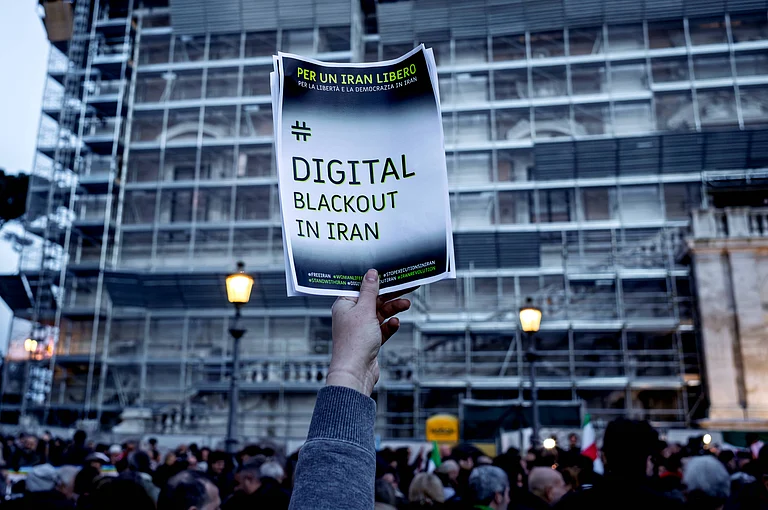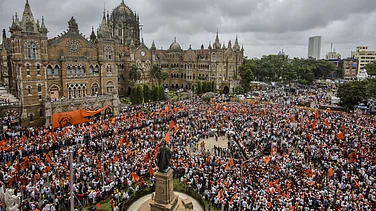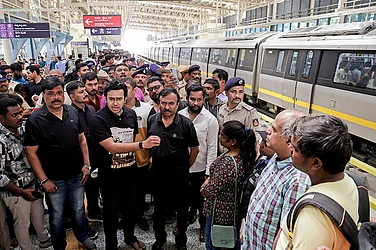The Supreme Court on Thursday ordered a stay on the Centre's fact check unit under the Press Information Bureau (PIB) which was notified as the authorised unit of the Union government to monitor online content pertaining to the business of the central government, and flag content related to it as "fake, false or as containing misleading facts". The stay on the notification comes a month amid concerns over its impact on the freedom of speech and press on the internet.
The Centre issued the rules for the fact check unit in April 2023 but held off on officially notifying it after the rules were challenged in the Bombay High Court by comedian Kunal Kamra, Editors’ Guild of India and some other media organisations. However, earlier this month, the court refused to grant an interim stay on setting up the FCU. The petitioners had moved the Supreme Court against the Bombay High Court verdict, and the top court today stayed the Centre's notification of the FCU, till the Bombay High Court finally decides the challenges to the IT Rules amendment 2023, according to LiveLaw.
"We are of the view that notification dated March 20, 2024, after rejection of application of interim relief, needs to be stayed. The challenge to the validity of 3(1)(b)(5) involves serious constitutional question and the impact of the rule on free speech and expression would need to be analysed by the high court," the bench, also comprising Justices J B Pardiwala and Manoj Misra, said.
What is the Fact Check Unit under PIB? What is it meant to do?
The fact check unit was notified under IT Rules of 2021 by the Ministry of Electronics and Information Technology. It will function as the nodal agency to determine if any information pertaining to the central government is “fake news” or “misinformation”.
According to PIB website, the unit is headed by a senior director general/additional director general level officer of the Indian Information Service (IIS) and its day-to-day operations are handled by IIS officers at various levels. “The Unit reports to the Principal Director General, PIB who functions as the Principal Spokesperson of the Government of India,” the website added.
If the unit does come across or is informed about any such posts that are "fake", "false" or contain "misleading" facts pertaining to the business of the government, it would flag it to the social media intermediaries. The online intermediaries would then have to take down such content if they wanted to retain their "safe harbour" (legal immunity against third-party content).
Not just social media companies like Facebook or Instagram, but even internet and telecom service providers like Jio and Airtel will have to block that information or that specific URL.
Why has the FCU been criticised?
Internet rights organisations and media organisations alike have criticised the establishment of an FCU at the sole discretion of the Union government. “As a result of these amendments, information about the Union government will essentially be fact checked by the government itself, through an FCU established by it. Not only does this violate the principles of natural justice, wherein one can’t be the “judge in their own cause”, but also poses a huge threat to online free speech and the right to receive information online,” the Internet Freedom Foundation said in a statement.
Media organisations too have called out the conflict of interest wherein the government would act as an arbiter especially when reports critical of the government are published by online media.
The Editors Guild of India, a non-profit organisation of journalists, had said the rules were “akin to censorship”. The Indian Newspaper Society (INS), another non-profit organisation that represents the Indian press, has called on the Union government to hold consultations with media organisations and press bodies before issuing any notification that could impact the media profession and its credibility.
The IFF also foresees that a move like this ahead of the general elections “could vastly affect the nature of free speech on the internet as it holds the potential to be (mis)used for proactive censorship, most importantly in the context of dissent.”
What did the petitioners say?
One of the petitioners, stand-up comedian Kunal Kamra, argued that the impact of the Rule is actually on the users as they are not given any prior notice before the information posted by them are taken down and neither is there any effective remedy for a user against the take down.
Further, as intermediaries would want to avoid civil or criminal liability for third-party content, they would end up complying with the takedown orders given by the government's unit, he argued. Hence, “the Rule is extremely broad in its sweep, and would operate to muzzle speech against the Central Government."
While the Bombay High Court allowed the Centre to proceed with issuing the notification for its FCU, the petitioners approached the Supreme Court. A bench comprising Chief Justice of India DY Chandrachud, Justice JB Pardiwala and Justice Manoj Misra heard the petitions today and ordered a stay on the notification, noting that the questions before the Bombay High Court deal with core questions on Article 19(1)(a) - right to freedom of speech and expression.


























